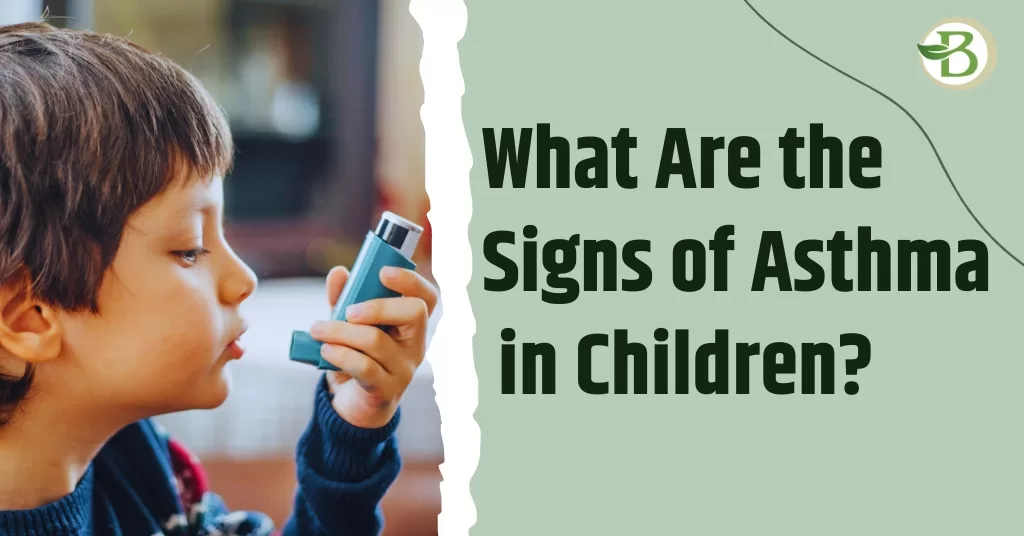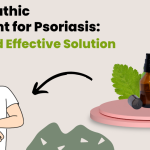Tiny Lungs, Big Challenges: Asthma in Children
Picture this: your child is running around the playground, laughter echoing, when suddenly, they stop, struggling to catch their breath. The wheeze, the cough, and the look of panic in their eyes— are all hallmarks of Asthma. It’s a chronic condition affecting millions globally, where the airways become inflamed and constricted, making it hard to breathe. It poses unique challenges for young ones and their families. Let’s explore childhood asthma, understanding its causes, symptoms, management strategies, and how we can empower our little warriors to lead healthy, active lives.
Asthma:
Asthma is a chronic (long-term) respiratory condition characterised by inflammation and narrowing of the airways (pipes that carry oxygen in and out of the lungs), making breathing difficult. Although asthma can strike at any age, it typically starts to appear in childhood when your child’s immune system is still developing. By age five, most kids with asthma have their first symptoms.
Signs of Asthma:
One of the biggest challenges parents face is recognising the symptoms of asthma in children, which can be easily mistaken for other respiratory ailments.
Common symptoms include:
- Frequent coughing: Particularly at night, during exercise, or when laughing.
- Wheezing: Making a whistling noise when breathing, particularly when you exhale.
- Shortness of breath: Difficulty in breathing, that may cause anxiety and panic.
- Chest tightness: A feeling of pressure, squeezing or constriction in the chest.
Asthma can vary from child to child, ranging from mild symptoms occasionally to severe episodes requiring immediate medical attention. Understanding these asthma symptoms in kids is the first step in recognising and managing the condition.
Asthma’s Hidden Triggers:
Childhood asthma triggers are often hidden in plain sight and embedded in our everyday environments. Identifying and managing these triggers can significantly improve a kid’s quality of life.
- Allergens: Common allergens like pollen, dust mites, pet dander, and mold can provoke symptoms of asthma. Regular cleaning, using allergen-proof bedding, and keeping pets out of the kid’s bedroom can help reduce exposure.
- Environmental Irritants: Smoke (tobacco, wood, and even strong odours from cleaning products), pollution, and chemical fumes can irritate the airways. Creating a smoke-free environment and using natural cleaning products can mitigate these triggers.
- Weather Changes: Cold air and sudden weather changes can trigger breathing issues. During colder months, dressing children warmly and using a mask to cover their faces can help.
- Respiratory Infections: Common colds, flu, and other respiratory infections can exacerbate asthma symptoms. Therefore, children must practice good hygiene and stay up to date with vaccinations.
- Exercise: While staying active is crucial for a kid’s growth, it can sometimes trigger asthma symptoms. However, with proper management, children can participate safely in sports and physical activities.
- Family History: If breathing issues, allergies, or other respiratory conditions run in your family, a child is more likely to develop asthma.
Timely diagnosis and intervention are critical in managing asthma effectively and preventing long-term lung damage. Parents play a pivotal role in providing detailed accounts of their kid’s symptoms, frequency of attacks, and potential triggers. Keeping a symptom diary can be quite helpful in this process.
Long-Term Effects of Childhood Asthma:
Childhood asthma is a respiratory condition characterised by inflammation and narrowing of the respiratory tract, leading to breathing difficulties. While many children outgrow their symptoms, some continue to experience them into adulthood, and the condition can have long-term effects.
One of the most significant long-term effects of childhood asthma is the potential for reduced lung function. Studies indicate that children with persistent asthma may experience slower lung growth compared to their peers, which can result in diminished lung capacity and respiratory issues later in life. This can manifest as chronic obstructive pulmonary disease (COPD) or other respiratory complications.
Persistent childhood asthma is also associated with increased risks of developing allergies, including allergic rhinitis and eczema. These can exacerbate symptoms and lead to a cycle of chronic inflammation and discomfort.
Moreover, it can have psychological and social impacts. Children with severe asthma often miss more school days, leading to academic challenges and potentially social isolation. The stress and worry associated with managing a chronic condition can contribute to mental health problems, such as anxiety and depression, which may last into adulthood.
Quality of life can also be significantly impacted. Physical activities might be limited due to the fear of triggering breathing difficulties, leading to a sedentary lifestyle and associated health problems like obesity and cardiovascular disease. The ongoing need for asthma medication and regular medical check-ups can also be a burden for both the kid and their family.
However, with proper management, many of these long-term effects can be mitigated. Early diagnosis, adherence to treatment plans, regular monitoring, and lifestyle modifications can help manage signs and improve long-term outcomes. Caregivers and healthcare providers must work together to create an effective management plan that addresses the kid’s immediate and long-term needs.
Creating an Asthma-Friendly Environment:
Childhood asthma is more than just a medical condition; it’s an emotional roller coaster for both the kid and their family. The fear of sudden attacks, the reliance on inhalers, and the endless cycle of doctor visits can leave you feeling helpless. Therefore, creating an environment that minimises exposure to triggers is vital in managing asthma in children. Here are some tips to consider:
- Control Allergens: Use allergen-proof covers on mattresses and pillows, wash bedding regularly in warm water, and keep pets out of the kid’s bedroom.
- Reduce Indoor Irritants: Avoid smoking indoors, use air purifiers, and ensure proper ventilation to reduce exposure to indoor pollutants and strong odours.
- Maintain Cleanliness: Regularly clean and dust your house to reduce allergens. Consider using a vacuum.
- Monitor Air Quality: Monitor local air quality reports and limit going outdoors when pollution levels are high.
- Encourage a Healthy Lifestyle: Encourage a balanced diet, regular exercise, and good sleep hygiene.
Homeopathy: The Best and Most Effective Treatment for Childhood Asthma
Imagine a world where your kid can breathe freely, laugh without worry, and enjoy life’s simple pleasures without the constant fear of an asthma attack. This is not a fantasy—this is the promise of Homeopathy.
Homeopathy is a 200-year-old medical practice based on the principle of “like cures like.” It uses highly diluted substances to facilitate the body’s healing processes. This holistic approach considers the individual’s unique symptoms and overall health, offering a personalised treatment plan. Rooted in centuries-old traditions, asthma homeopathic treatment provides a holistic approach that addresses underlying symptoms and causes, providing relief and long-term well-being for young patients.
Homeopathy offers an especially suitable and effective solution for children whose bodies are still developing and highly responsive to natural treatments. Homeopathic treatment for asthma in children is a comprehensive, effective, and safe alternative for childhood asthma. Its holistic approach, personalised treatment plans, and natural remedies make it ideal for parents seeking a gentle yet powerful solution for their children’s health. As more families discover the benefits of childhood asthma homeopathic medicine, it is poised to become a leading choice in the fight against breathing difficulties.
Its natural, safe, and individualised approach can transform your child’s life, allowing them to breathe freely and enjoy their childhood fully. By choosing homeopathy, you are not just treating asthma but investing in your child’s health and future.
Bharat Homeopathy Hospital:
Asthma may be lifelong, but children can lead full, active lives with proper management. Bharat Homeopathy Hospital is at the forefront of providing exceptional homeopathic care for children with asthma. Utilising a holistic approach, the hospital combines time-tested homeopathic remedies with modern medical practices to offer personalised treatment plans. These plans are designed to alleviate the symptoms and address the root causes of asthma in children, ensuring long-term relief and a better quality of life for young patients.
Our team of experienced homeopathic practitioners is dedicated to delivering compassionate care and tailored asthma treatment that caters to each child’s unique needs. At Bharat Homeopathy Hospital, we prioritise safe, gentle, and effective therapies that support your child’s overall well-being.
Take the first step towards a healthier, trouble-free life for your kid. Contact Bharat Homeopathy Hospital today to schedule a consultation and discover the benefits of our best homeopathy medicine for childhood asthma.


